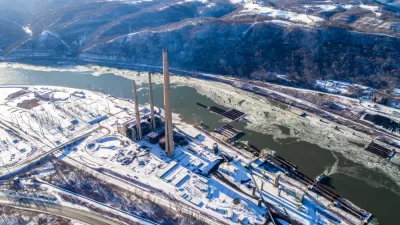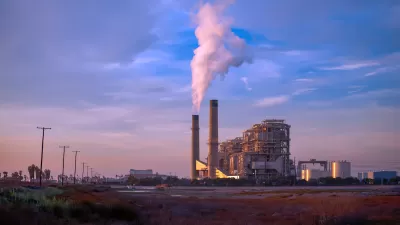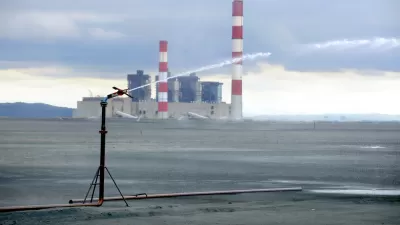A D.C. circuit court struck down a rule that limited the agency's regulatory reach to emissions "at the source" in the power sector.

The D.C. Circuit Court of Appeals vacated the EPA's Affordable Clean Energy rule, setting the stage for renewed efforts to regulate emissions at the federal level, reports Ellen M. Gilmer. "The decision undercuts Trump officials’ bid to leave a legacy of deregulation, tossing one of the administration’s highest-profile replacements of aggressive Obama-era environmental rules."
The Trump EPA claimed that the agency could only enforce emissions restrictions "at the source" of power plants, limiting the extent of the agency's power. The court's decision clears the way for a return to the previous administration's "sector-wide approach to reducing emissions." The court rejected the EPA's arguments, asserting that the agency's reading of the Clean Air Act "require[s] the Agency to turn its back on major elements of the systems that the power sector is actually and successfully using to efficiently and cost-effectively achieve the greatest emission reductions."
The ruling will allow the Biden administration to regulate greenhouse gas emissions in the power sector more effectively, but also leaves a "regulatory gap" as the new officials craft a plan. "Environmental lawyers expect new agency leaders to opt for a broad, Clean Power Plan-style approach, but have cautioned that any ambitious regulation will likely invite a skeptical eye from the U.S. Supreme Court’s new 6-to-3 conservative majority."
FULL STORY: EPA’s Industry-Friendly Climate Rule Struck Down by Court (3)

Planetizen Federal Action Tracker
A weekly monitor of how Trump’s orders and actions are impacting planners and planning in America.

San Francisco's School District Spent $105M To Build Affordable Housing for Teachers — And That's Just the Beginning
SFUSD joins a growing list of school districts using their land holdings to address housing affordability challenges faced by their own employees.

The Tiny, Adorable $7,000 Car Turning Japan Onto EVs
The single seat Mibot charges from a regular plug as quickly as an iPad, and is about half the price of an average EV.

Seattle's Plan for Adopting Driverless Cars
Equity, safety, accessibility and affordability are front of mind as the city prepares for robotaxis and other autonomous vehicles.

As Trump Phases Out FEMA, Is It Time to Flee the Floodplains?
With less federal funding available for disaster relief efforts, the need to relocate at-risk communities is more urgent than ever.

With Protected Lanes, 460% More People Commute by Bike
For those needing more ammo, more data proving what we already knew is here.
Urban Design for Planners 1: Software Tools
This six-course series explores essential urban design concepts using open source software and equips planners with the tools they need to participate fully in the urban design process.
Planning for Universal Design
Learn the tools for implementing Universal Design in planning regulations.
Smith Gee Studio
City of Charlotte
City of Camden Redevelopment Agency
City of Astoria
Transportation Research & Education Center (TREC) at Portland State University
US High Speed Rail Association
City of Camden Redevelopment Agency
Municipality of Princeton (NJ)





























